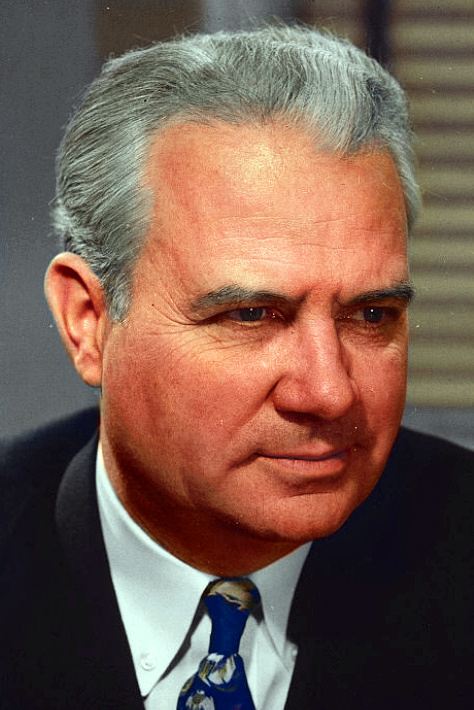The Pittsburgh Press (January 25, 1944)

In Washington –
‘State’s rights’ supporters outfox federal vote leaders
By Thomas L. Stokes, Scripps-Howard staff writer
Washington –
Even if the fighting men could watch the show Congress is putting on in connection with the soldier-vote bill, they probably couldn’t understand it. Parliamentary maneuvers, filibustering and tricky amendments are being used by the coalition of Republicans and Southern Democrats trying to defeat the Green-Lucas-Worley Bill with its simple ballot.
Some members themselves are not clear about what is going on, beyond observing that the coalition backing the Eastland-Rankin “states’-rights” bill seems to have the advantage in slick maneuvers. Administration leaders appear inept.
To add to the confusion, a race has started between House and Senate to pass a bill first.
Adjournment of the Senate today out of respect to the memory of Senator Frederick Van Nuys (D-IN), who died last night, delayed its showdown vote on the bills.
The Senate took up the new Green-Lucas Bill yesterday. Immediately, Republicans led by Senator Taft (R-OH), with the connivance of Southern Democrats, started a filibuster to hold up passage until the House acts first on the states’-rights bill sponsored by two Mississippians, Senator Eastland and Rep. Rankin.
The House took up that measure today, operating under a special rule, framed by the coalition, which bars a record vote on the Worley Bill for a federal ballot, which Rep. Worley (D-TX) will offer as a substitute.
This was designed so that constituents of Republicans cannot find out how their Congressmen voted on this issue of giving servicemen an opportunity to vote easily. Southern supporters of the Eastland-Rankin Bill do not care who knows how they vote, but they are helping their Republican allies to keep their votes secret.
The coalition hopes to rush through this measure, which Secretaries Stimson and Knox say cannot be administered effectively since it is complicated by 48 state laws, in an effort to confuse the legislative situation in the Senate so that it will be difficult to act on the Green-Lucas Bill for a federal ballot.
The Senate situation is confused by the fact that the Senate itself once passed, a few weeks ago, the Eastland “states’-rights” bill.
Sponsors of the new Green-Lucas Bill, Senators Lucas (D-IL) and Green (D-RI), are anxious to get their measure passed first in the Senate, with the hope of a psychological effect in the House, but the coalition filibuster will apparently prevent that.
Republicans in the Senate revealed their new strategy, which is to insist that ballots for state as well as federal offices must be distributed to every soldier, even though Secretaries Stimson and Knox say the services can guarantee delivery and return only of a simplified ballot for President, Vice President and members of Congress.
The new Green-Lucas Bill provides that transportation shall be provided for these state ballots, as well as the simple ballot, as far as may be possible, but with priority given to the simple ballot.
The Republican spleen against the two Republican Cabinet members broke into the open yesterday when Senator Taft accused them of “running for a fourth term” so they could continue in office, and said he did not believe what they said about delivering state ballots.
Governor Bricker to address Spanish War veterans

United Spanish War Veterans of Western Pennsylvania will have John W. Bricker, Governor of Ohio and Republican presidential candidate, as guest speaker at the annual McKinley Day dinner Thursday night in the William Penn Hotel.
John F. Barry, national inspector general of the USWV, announced the dinner is a sellout.
Other guests will include County Commissioner John J. Kane, Col. Robert G. Woodside (past national commander of the VPW), Guy V. Boyle of Indianapolis (national head of the USWV), Charles I. Shaffer of Somerset (department president), Hattie B. Frazenfield (national president of the Auxiliary), County Legion Commander Michael A. Fisher and Dr. William A. Knoer (Allegheny County commander of the Veterans of Foreign Wars).
Edward S. Mathias, judge of the Ohio Supreme Court and a past commander of the USWV, will accompany Governor Bricker here for the dinner.